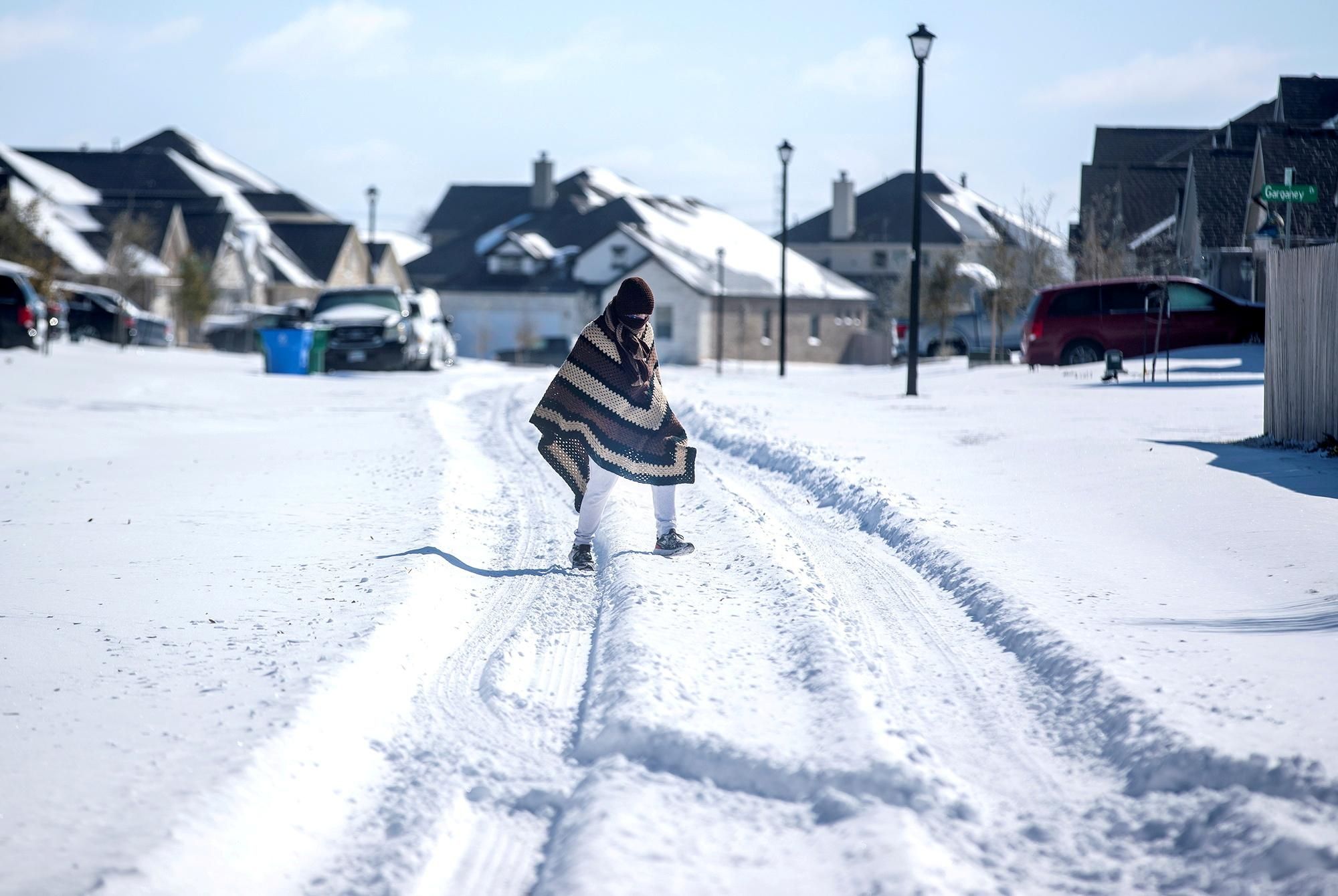Texas on ice: Winter storms and uncharacteristically freezing weather have plunged the normally toasty US state of Texas into a severe crisis, as power grids knocked offline by the cold had left nearly 3 million people without electricity by Wednesday morning. The state's 29 million residents are now subject to rolling blackouts. Like everything else in America, the situation in Texas has already become a partisan football. Republicans skeptical of renewable energy seized on a handful of frozen wind turbines to argue that the failure of clean energy sources was responsible for the crisis, but data show the collapse in energy supply is overwhelmingly the result of natural gas infrastructure being knocked offline by the cold (pipelines in Texas generally aren't insulated.) In addition, because of resistance to federal regulation, Texas' grid runs with lower reserve power margins and no connection to surrounding state grids, meaning that no power can be imported when a crisis strikes. The sustainability of that model is likely to be the subject of fierce political wrangling in coming months, and will likely spill over into debates on Capitol Hill about "Green Stimulus." For now, millions of Texans are shivering, and not happy about it.
Another school kidnapping in Nigeria: Nigerian President Muhammadu Buhari has sent his security chiefs to coordinate the rescue of 42 people — including 27 children — abducted by gunmen from a school in the central state of Niger. Such kidnappings are a recurring tragedy in Nigeria: in 2014, Boko Haram militants abducted 276 schoolgirls, prompting the #BringBackOurGirls viral campaign, and just two months later they kidnapped close to 400 schoolchildren in northeastern Katsina state. This time, however, the kidnappers are reported to be not Islamist militants but an armed gang holding the hostages for ransom money. It's the first major test for the country's new military command, which Buhari reshuffled less than a month ago to better respond to Nigeria's multiple security crises, including a recent spike in... kidnappings. Will Buhari's top brass be up to the task of freeing the hostages without coughing up some cash?
"Super Mario" vs Italian red tape:Newly minted Italian Prime Minister Mario Draghi
announced on Wednesday a raft of ambitious reform proposals to help his country recover from its pandemic-induced economic crisis and attract fresh investment. His wish-list includes overhauling the income tax system, spending big on education and research, digitizing Italy's antiquated public administration systems, and speeding up the country's sluggish courts. But can he
succeed where previous Italian PMs have failed? Draghi has two things going for him. First, unlike his predecessors who had to mop up the Italian debt crisis a decade ago, he won't be constrained by unpopular austerity restrictions when he starts spending Italy's share of the EU coronavirus relief fund. And second, Draghi poses no direct threat to any political party because he doesn't intend to stay on after his government's term expires in two years. Draghi is still hailed for
saving the Eurozone a decade ago, but tackling Italy's entrenched and famously bloated bureaucracy may prove to be an even badder Bowser for the man known as "Super Mario."
